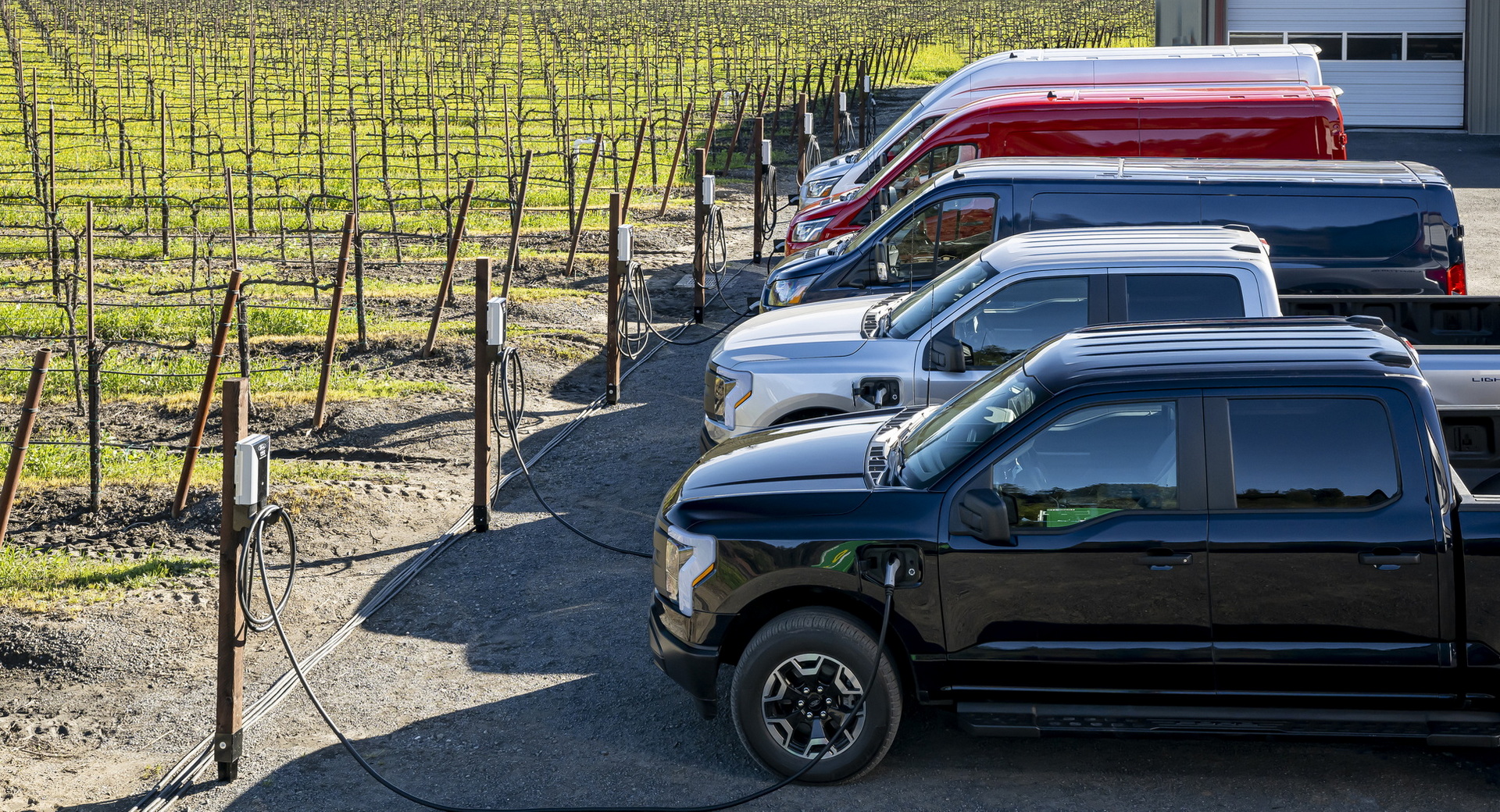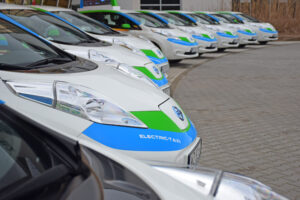The question of how long it takes an EV to charge is a tricky one. There are many things that affect charging time. Let’s take a look at some of the things that affect charging times.
There are three main things that affect charging time: the type of charger, the charger kW output, and the battery architecture.
Type of Chargers
The charger is the biggest deciding factor of how long does it take to charge an EV. There are three main types of chargers – Level 1, Level 2, and Level 3 also called DC Fast Charging. There is a fourth type, Megawatt charging, but it is new and not normally used for vehicles except for very specific class 8 vehicles at this time.
Level 1 and Level 2 chargers take in AC (alternating current) power to charge the vehicle. DC Fast chargers or Level 3 chargers convert AC power to DC (direct current) power to charge the vehicle. DC power is more stable and also faster. While AC power is more readily available and considered safer for frequent use.
Level 1 Charger
This charger is like plugging into a regular home socket. Level 1 chargers are powered at 110 volts and will take the most amount of time to charge a car. They typically have a power output of 1 kW. Think of this as long dwell charging, taking over 24 hours to charge from 20% to 80%.
Level 2 Charger
Level 2 is like the plug for a washing machine or a dryer. They are powered at 220 volts, typically need a larger 40 or 80 amp breaker, and will charge the car faster than level 1. These chargers can be found with power outputs between 7 kW and 19 kW. Level 2 chargers are overnight charging, it takes between 4 to 8 hours to get from 20% to 80%.
Level 3 Charger
DC fast charging or level 3 charger is three phase power vs the others that are single phase. They chargers are powered at 480 volts and will charge the car in the fastest amount of time. Generally, charging takes less than an hour. DC Fast Chargers can be found with power outputs between 50 kW and 350 kW.
kW Output
Within the types of charges there are also different kilowatt (kW) outputs within each type. kW output is another way of saying charging speed output. kW is an electric unit of measurement, the bigger the number, the more power.
Even though each charger is using a specific voltage, there can be different kW outputs. The larger the kW output the faster the charger, comparatively the lower the number the slower the charge. Each charger has a kW output listed for the highest kW that can be output at any given time.
EV chargers do not deliver the same kW consistently. The charger uses a higher amount of kW when first charging, then drops to a lower amount of kW as the battery fills up. The first 80% of the battery charges faster than the last 20%.
However, there are a few other things that can affect the kW output of a charger. Third party software, like Load Management, may have been added by the owner of the charger and can affect the charging speed output of the charger. Other things that can affect the kW output have to do with infrastructure and the utility. Things like power output, inefficiencies and line loss which is dependent upon the distance the power travels.
Battery Architecture
Yet another factor that affects how long does it take to charge an EV is battery architecture. The most common types of batteries in electric vehicles are lithium-ion, known for their high energy density and good thermal stability in most normal weather conditions. The capacity and effective lifespan of these batteries play a significant role in how effectively they can be charged and maintain a charge.
Charging time and rate of charge is based on the vehicle battery architecture. Inverters inside the battery of the vehicle can only take a maximum kW at any one given time. And so the inverter will throttle the charge based on what the vehicle can take, regardless of the charger’s kW output.
Also, larger batteries take longer to charge. Larger batteries can provide more range and are slower to discharge. While smaller batteries can be faster to charge, they will not provide as much range.
This is why the first step before deciding on chargers is picking a vehicle. It is really important to pick the right charger for your vehicle because not every charger will work with every vehicle.
Once the vehicle is known, the charger can be picked based on your needs. How long will you have to charge and what will that charging schedule look like? Most people can use Level 2 chargers for most circumstances. We’re happy to help talk about your specific needs and you can schedule an appointment to talk about your use case.
FAQs
How Long Does it Take to Charge an EV?
Charging speed depends on the type of charger used:
Level 1 chargers or long dwell chargers can take over 24 hours for a full charge.
Level 2 chargers can fully charge an EV overnight in about 4-10 hours.
DC Fast Chargers can charge up to 80% in as little as 30 minutes.
Can an Electric Vehicle Be Charged at Home?
Absolutely, with either a standard Level 1 charger or a more efficient Level 2 charger. However, the charging time may be longer which is offset by the fact that you are home.
Can You Charge an Electric Vehicle with a Generator?
Yes, but it’s not the most efficient or recommended method unless the generator is purpose built and specifically designed to handle the load.
How Long Does a Charge Last on an Electric Vehicle?
The duration of a charge can vary based on driving conditions, weather, vehicle efficiency, and battery age but typically ranges from 150 to 300 miles per full charge.
Can You Charge an Electric Vehicle on Solar Panels Alone?
Yes, it is possible to charge an electric vehicle using solar panels alone, but it requires a properly sized solar photovoltaic system and storage system (like a battery bank) to be feasible and efficient.
How Much Does it Cost to Charge an EV?
Cost is dependent on whether you are charging at your own facility or public chargers. At your own facility cost is dependent upon the utilities cost per kWh.
Which level charger is best?
This depends entirely on your use case. Level 1 charging will rarely be useful for fleets. Level 2 and DC fast charging will be better.




